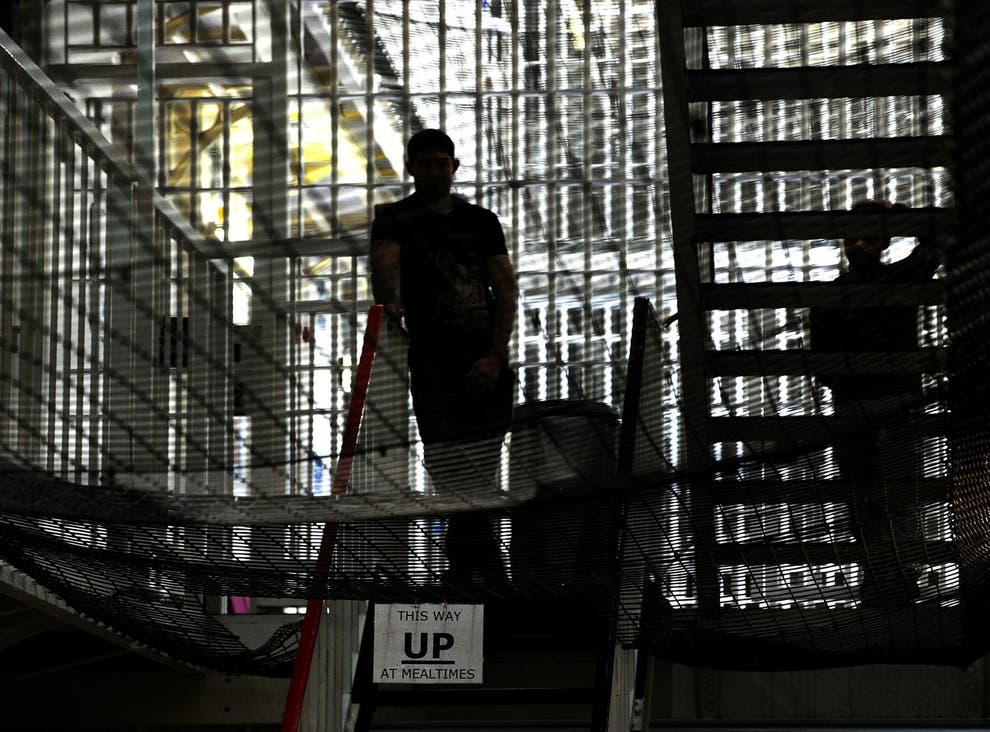Government’s plan to cut crime with prisons drugs crackdown branded ‘simplistic and short-sighted’
Boris Johnson says renewed drive to keep drugs out of jails will ‘tackle scourge of reoffending’ – but campaigners say he is in danger of addressing the ‘symptoms of broken prison system, not its causes’

The government has announced a £100m crackdown on drugs in prisons which it says will “tackle the scourge of reoffending and cut crime” – but the plan has been branded “simplistic and short-sighted”.
Ministers say that new measures aimed at keeping drugs out of prisons and creating the “right conditions” to reform and rehabilitate offenders will see “airport style” security as standard in jails.
This will include cutting-edge X-ray body scanners, biometric identification for visitors and drug dogs and hand-held wands at prison gates, according to the Ministry of Justice (MOJ).
Every inmate will be assessed for drug and alcohol addiction on arrival in custody and new stringent targets will hold prison governors to account for keeping drugs out of their jails.
Ministers pledged in last month’s spending review to “continue the biggest prison-building programme in more than a century”, with £3.8bn in funding to deliver 20,000 additional prison places by the mid-2020s.
Boris Johnson unveiled today in a prisons white paper that alongside the increase in jail places, “prisons also need to play their part in cutting crime and preventing future victims”.
“That is why with a zero tolerance approach to drugs and more autonomy for governors to maintain good order, our reforms will clamp down on the causes of reoffending and make sure prison pays,” the prime minister said ahead of the announcement.
However, Andrea Coomber, chief executive of the Howard League for Penal Reform, said that to suggest that the answer lay in cracking down on drugs was “simplistic and short-sighted” and failed to address the root of the problem.
“Successive governments have tried to tackle the scourge of drugs through security measures, but the root cause of the problem is the fact that we have overcrowded prisons where people are not given purposeful work and education,” she added.
“If, at the same time as spending all this money on security, the government is committed to massively increasing the prison estate, then the reality is that the problem of drugs will grow, and the resources required to address it will grow as well.”
Peter Dawson, director of the Prison Reform Trust, echoed her concerns. He said that while investment in preventing drugs from getting into prisons and helping people get clean was “welcome”, it was “hardly a new ambition” and that the track record of delivery on prison promises was “poor”.
“You can’t build prison reform on a foundation of overcrowded, dilapidated prisons where prisoners spend most of their day in their cells. That’s what life is like in the prisons where these problems are most acute,” he added.
“The government is in danger of addressing the symptoms of our broken prison system, not its causes.”
Under the plans, the government will also consider using scanners to search staff who may be susceptible to corruption – which it said would stop vulnerable frontline officers from being blackmailed into bringing illegal items into prisons.
Prisons will be given individual targets on the number of drug tests to be carried out, and, for the first time, they will also be held to account on drug rehabilitation and their success in moving prisoners towards meaningful recovery.
A range of treatment options, including abstinence therapy, will get prisoners out of the debilitating addictions known to fuel crime, helping to reduce over-reliance on opiate substitutes like methadone which can be highly addictive, the MoJ said.
It comes after an analysis of data by think tank Reform last year revealed that the number of inmates developing drug problems had more than doubled in five years – followed by concerns that Mr Johnson’s plans for tougher sentencing could “heap further pressure” on the system.
Join our commenting forum
Join thought-provoking conversations, follow other Independent readers and see their replies
Comments
Bookmark popover
Removed from bookmarks